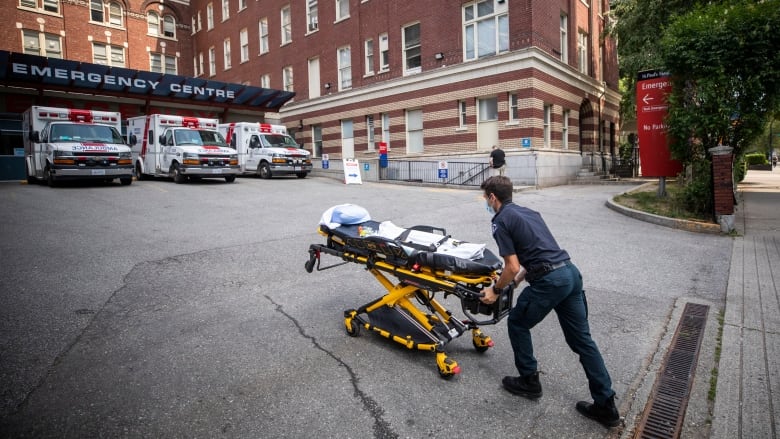How does extreme heat affect the human body and why does it ultimately lead to death?
Weather of Arabia - All over the world, temperature records are still being broken, which leads to the death of many people.
More than 100 deaths due to the extreme heat in Mexico
More than 100 people have died from heat-related causes in Mexico as of July 27, 2023, in addition to many more deaths in several US states. In Arizona, a desert state that was exposed to temperatures exceeding 40 degrees Celsius for several weeks and broke (and re-broken) the record for the highest temperature in five decades, and people die of heatstroke or from life-threatening burns if they fall on the hot pavement.
Canada isn't faring much better, with heat warnings across the western provinces and several suspected heat deaths in British Columbia, where a "heat dome" killed more than 600 people in 2021.

Why extreme heat is dangerous to the human body?
Scientists say that the reason is due to the fact that high temperatures have a negative effect on many organs, putting pressure on the heart, disturbing memory, causing rapid dehydration and eventually leading to death if the body is not able to cool itself quickly enough.
Effects of extreme heat on the human body
The effect of extreme temperatures on the brain
As temperatures rise, your brain can have difficulty processing information and this decrease in cognitive function can impair posture and predispose people to falls or injury. In extreme cases, extreme heat can cause serious inflammation of the brain.
At this point, a person's nervous system is not able to function well because the brain is getting too little blood, according to Stephen Cheng, a principal investigator at Brock University in St. human physiology.

The effect of heat on mental health
Heat also affects mental health, and research indicates this, as higher temperatures have been linked to higher suicide rates in the United States and Mexico while a study in Bangladesh showed a link between tears from sources of stress caused by climate changes and the burden of anxiety and depression.
Heat "may be exacerbating people's mental and psychological health conditions," said researcher Amruta Nuri Sarma, assistant professor in the Department of Environmental Health at Boston University's School of Public Health.
One of her own studies, published in the Journal of the American Medical Association last year, showed that in the US, days of extreme heat were associated with higher rates of mental health emergency department visits for conditions including anxiety, psychological abuse and substance abuse.

The effect of extreme temperatures on the epidermis and skin
When the temperature rises, your skin plays an important role in cooling the body — because humans need to maintain their core body temperature within a "very narrow range," said Larry Kinney, a professor of physiology and kinesiology at Penn State.
"The two main ways we can control the rise in our body temperature are by increasing blood flow to the skin - a system unique to humans - and sweating over most of the body area and evaporating that sweat," he says.
But a revolution in this process can occur when there are very high temperatures, especially when this rise is accompanied by a rise in humidity. These combined factors hinder the evaporation of sweat, which prevents it from having an effect on cooling the body. While it also leads to an increase in dehydration, scientists call this concept the "wet ball temperature", a temperature at which the process of evaporation of water from a wet ball of heat stops at a temperature of 35 ° C, and humans cannot cool themselves
The elderly and infants can be at particular risk if their body temperature rises too high, although Kenny stresses that anyone can be affected. “In conditions of warm heat and humidity, while humans go about their daily activities, even young, healthy men and women may They begin to see continuous increases in their body temperature.
This can lead to the most serious heat illness, heatstroke. When the body's ability to sweat fails and the internal temperature continues to rise, it can reach more than 40°C in just 10-15 minutes, which may lead to permanent disability or death.

The effect of extreme temperatures on the heart
As the body temperature rises, stress begins on the entire cardiovascular system. "What happens is it puts more stress on the heart because now it's getting less blood returning and it has to work harder to pump that blood out to the rest of the body," Cheng said.
"When the heart becomes deficient in oxygen and nutrients, it can lead to fatal conditions such as a heart attack," says Daniel Gagnon, a researcher at the Montreal Heart Institute.
Georgette Gagnon said: "There are a lot of studies that show an association between heatwaves or extreme temperatures and cardiovascular disease.
A new study conducted in China and published in the journal Circulation indicates that the special combination of extreme temperatures and air pollution increases the risk of a fatal heart attack, especially among the elderly, by up to 75% during a heat wave. It lasted four days.

The effect of extreme temperatures on the lungs
Breathing hot, moist air can be hard on the lungs, exacerbating health conditions and putting people at risk of other respiratory problems.
“Extreme temperatures are especially dangerous for those with respiratory conditions,” said a 2018 editorial in The Lancet medical journal.
“The exacerbation of chronic diseases such as chronic obstructive pulmonary disease (COPD) and asthma increases dramatically with extreme temperatures, which often exacerbate air pollution in cities, in addition to seasonal allergies.”
One study in the United States found that an increase of 5.6°C was associated with an approximately 4% increase in same-day hospitalizations for respiratory illnesses.

The effect of extreme temperatures on the kidneys
With dehydration caused by a high body temperature, the kidneys are greatly affected, as the kidneys are responsible for filtering the blood by removing waste products and excess water that is eventually excreted as urine. "Dehydration can cause problems such as kidney failure and can also lead to hospitalization or death," said Georgette Gagnon.
"It's a three-way combination of increased stress on the heart, elevated body temperature, and fluid stress or dehydration that can cause increased stress on the kidneys."
One meta-analysis of multiple previous studies, published in the Journal of Preventive Medicine and Public Health, showed a 30 percent increase in kidney disease under high temperatures. The researchers also noted an increase in some conditions, including kidney stones.

How do you protect yourself from high temperatures?
All of this paints a grim picture throughout the human body: extreme temperatures can damage many organs, raise your internal body temperature to dangerous levels, and ultimately lead to death — unless you are quickly able to reverse the process.
If you start to feel sweaty, clumsy, and super thirsty — and if the sweat you're producing isn't already cooling your body down — Cheng says, you may be about to enter the danger zone.
"Move yourself indoors, into air conditioning if possible, and if things are really bad, the best way to cool off is to get under cold water," he says.
Soaking towels and wrapping them around your body can also help. "The best thing you can do is cool down as much as possible," he said.
“The best thing you can do is cool down as best you can get to it,” he says.
Source:
Arabia Weather App
Download the app to receive weather notifications and more..



